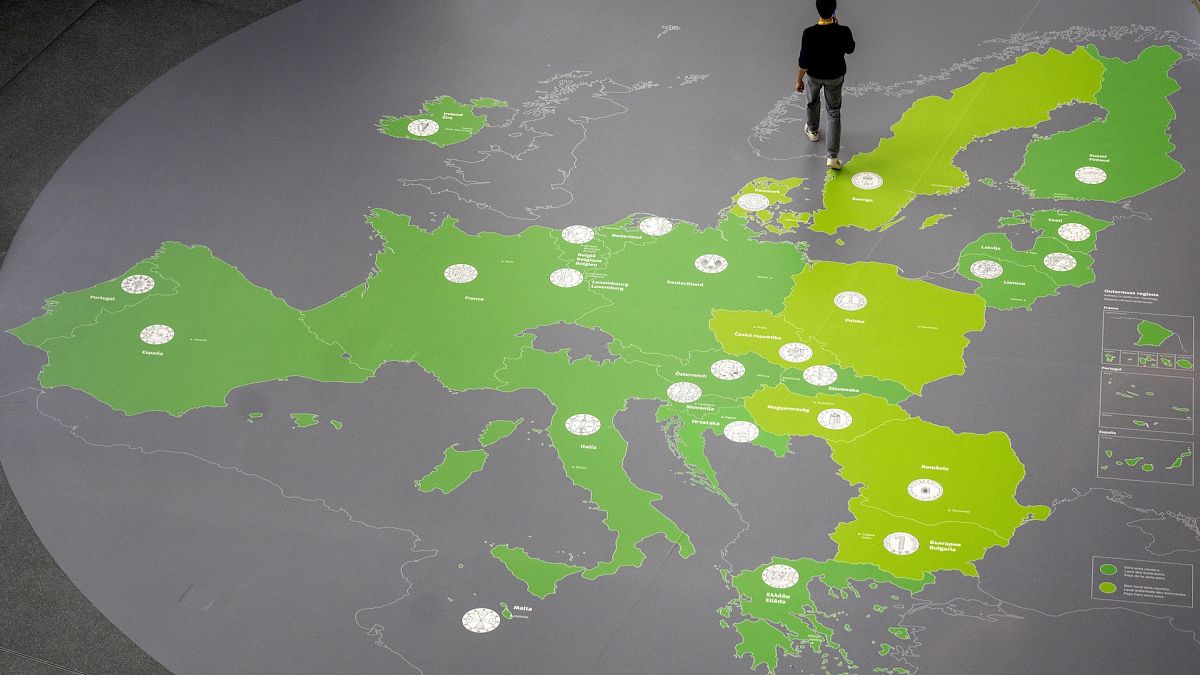Eurozone growth for the second quarter of 2024 was revised down to a modest 0.2%, indicating a slowdown in economic momentum compared to the first quarter. While Germany experienced a decline, Spain reported strong growth. Analysts predict that the European Central Bank (ECB) will announce a rate cut of 25 basis points in the upcoming meeting.
According to Eurostat’s latest estimates, the eurozone’s gross domestic product (GDP) rose by 0.2% quarterly in Q2 2024, a downward adjustment from the initial estimate of 0.3%. This reduction in growth figures reflects a similar downward trend across the broader European Union.
These statistics illustrate a decreased pace relative to the first quarter, where both the eurozone and the European Union enjoyed a growth rate of 0.3%.
Year-over-year, the GDP shows a 0.6% increase in the Eurozone and a 0.8% rise within the European Union during the second quarter.
Disparities Among Eurozone Member States
Significant disparities became apparent among member states, with Poland leading with a 1.5% growth quarter-on-quarter, followed by Greece at 1.1% and the Netherlands at 1.0%. Conversely, Ireland reported the largest decline at -1.0%, followed by Latvia at -0.9% and Austria at -0.4%.
Among the eurozone’s major economies, Germany faced a contraction of 0.1%. In stark contrast, Spain recorded a robust expansion of 0.8%, while both Italy and France experienced modest growth at 0.2% each.
Key components impacting eurozone growth included a 0.1% drop in household final consumption expenditure, a 0.5% rise in imports, and a significant decrease in gross fixed capital formation by 2.2%. However, positive contributors to growth included a 0.6% increase in government spending and a 1.4% uptick in exports.
Economic Slowdown Leads to Potential ECB Rate Cuts
In light of the recent data indicating weakened consumer confidence and lagging activity in key sectors, Piero Cipollone, an Executive Board member of the European Central Bank (ECB), expressed concerns about potential risks to the euro area’s growth forecast. Measuring investment trends, he indicated that companies remain cautious about a solid recovery.
On the matter of inflation, Cipollone mentioned ECB forecasts suggest a return to the 2% target in the latter half of 2025.
Regarding the upcoming ECB meeting on September 12, he stated: “Current data appears to confirm our trajectory, and I anticipate the possibility of easing some restrictions.”
The market consensus supports expectations for a 25 basis point rate reduction during this ECB gathering.
ECB’s Flexible Approach to Monetary Policy
“We anticipate President Lagarde will signal the start of the dial-back phase, yet we do not foresee a precise timetable for further rate reductions,” stated Danske Bank in a recent report.
The bank believes the ECB will implement a flexible, data-driven approach to policy, evaluating conditions on a meeting-by-meeting basis. They also expect a minor upward adjustment in core inflation projections, while energy price estimates will likely stabilize headline inflation.
Nonetheless, they warn that the market has already incorporated 61 basis points of expected ECB cuts this year and over 100 basis points for the following year, which they view as overly aggressive.
Looking ahead, Danske Bank highlights that the FOMC meeting on September 18 could significantly influence the short-term trends of the EUR/USD exchange rate.
They noted, “The upcoming jobs report in August is likely to reinforce expectations for a 25-basis-point cut from the Fed, which may bolster U.S. yields and strengthen the dollar.”
Photo credit & article inspired by: Euronews



